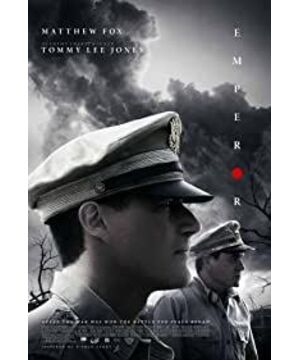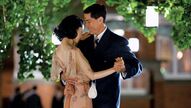Let's go back to history.
In May 1932, Japanese Prime Minister Takeshi Inuyo, who was committed to avoiding the Sino-Japanese War, was assassinated by soldiers. Since then, Japan has entered the era of militarism and turned on the war machine. Since then, Asia has been a bloody storm.
To this day, Japanese historian Takushiro Hattori's "Complete History of the Great East Asian War" put forward three reasons for Japan's political transformation at that time:
First, the oppression of Japan by foreign powers after the end of the First World War, especially the United States of oppression.
The United States advocated abolishing the Japan-Britain alliance, limiting the tonnage of Japanese naval capital ships at the Washington Conference, abolishing the Ishii/Lansing Agreement, restricting Japan's special rights in Manchuria and Mongolia, and enacting an immigration bill to exclude Japan, casting a shadow over Japan's future.
Second, the economic exclusion of Japan by Western powers.
With the rapid advancement of industrialization, Japan increasingly needs to import materials from overseas and open up markets overseas. However, European and American countries have built high tariff barriers to protect their industries. Facing overpopulation, lack of resources and insufficient funds, Japan is gradually being excluded from the world market. Go out, and survival is fundamentally threatened.
Third, China's platoon movement.
It is believed that China's movement to regain state rights was combined with the national self-determination movement after the First World War, and the target was directed at Japan. The Japanese exclusion policy also provided China with a means to unify the country. The recovery of Lushun Dalian and the South Manchurian Railway finally led to the outbreak of the Manchurian Incident.
This is the reason why Japan turned to fascism proposed by Takushiro Hattori in "The Complete History of the Great East Asian War".
The core is actually one sentence: it's all someone else's fault.
Invading other countries, occupying other countries' land, slaughtering other countries' people, and plundering other countries' wealth, not only should Japan not be responsible, but Japan itself is full of complaints, inner grievances, and dissatisfaction. As for what responsibility should Japan bear? Not at all. The "September 18th Incident", the "July 7th Incident", and the "Pearl Harbor" Incident were all the faults of others, not Japan.
It seems that such a book has been selected as a textbook in Japan, and it seems that it is not as simple as explaining it by the narrowness of the national character of the island country. If these upright fascist reasons and reasons for war were concocted earlier, why did Japan surrender unconditionally back then?
Japan now prays for peace every year on the day of the atomic bombing of Hiroshima for Japan's war victims, but never launched a war of aggression for the Chinese, Koreans, Filipinos, Malaysians, Indonesians, Vietnamese, Thais, Peace prayers for these war victims of Burmese. I only remember the two atomic bombs, I only remember that I was injured by the atomic bombs, and I forget the letters that supported the fascists like snowflakes, and the girls who offered to marry them. Can the lanterns be decorated, the old and the young cheered, marched, and celebrated as their troops conquered the city and seized the land, can they draw lessons that should really be remembered? If you just pray to keep peace and survival for yourself and don’t care about the death and suffering of others, and even delete relevant records in textbooks, or even compile those so-called “textbooks” full of lies, can militarism really be eradicated in Japan? ? We also have some scholars who are "knowing in their chests (various statistics) and defiant (national characteristics, thinking habits)", who believe that although the reason for Japan's turn to fascism is internal, it is mainly caused by the dissatisfaction of a small number of soldiers with the status quo. It is believed that after the Nine Powers Conference in Washington in 1921, Japan began to implement disarmament, and its military expenditure fell from 730 million yen in 1921 to less than 500 million yen in 1930, a decrease of 40%, which caused strong dissatisfaction among the soldiers. "For professional soldiers, they have no other specialties except military, and disarmament means losing their jobs. In addition, professional soldiers were the most respected people in society before disarmament, and the military was the most honorable profession. But after disarmament began, professional soldiers The best students no longer apply for military academies, and some restaurants even refuse entry to those wearing military uniforms. The sense of loss and anxiety that disarmament brings to professional soldiers is conceivable.”
Dongguo What a wonderful way out for the other side, the kind-hearted scholars as Mr. Mr. Wang have turned into a reason for turning to fascism. The former said that turning to fascism was not the choice of Japan, but a choice forced by the United States, Britain and China, while the latter said that even the choice of Japan was the choice of the Japanese soldiers rather than the choice of the Japanese nation and the Japanese nation.
Why do fascist seedlings grow so strong and crazy in Japan? Where is its soil? What are nutrients? Where are the roots? Is it just a few bad elements who deceive the broad masses of the people?
The madness of the Showa warlord clique, which is dominated by young officers, is rooted in the madness of Japanese social emotions. Every nation has its own hot-blooded youth. They all want to use their blood to open up an ideal path forward. But a person will fall into a misunderstanding, and a generation will fall into a misunderstanding, even including a nation. Responsibility for causing an entire country to turn to fascism must not be attributed solely to a few Class A war criminals sentenced to death by the military tribunal in the Far East after the end of World War II. When the passionate youth of Russia overthrew the Romanov Dynasty and realized the February and October Revolutions in 1917, the passionate youth of China overthrew the Aisin Gioro Dynasty, realized the Revolution of 1911, and in 1919 " After the May Fourth Movement, the New Democratic Revolution began, but Japan took a different path.
On December 25, 1926, when the Northern Expedition was destroying the land of China and Stalin and Trotsky in Moscow were arguing about the Chinese revolution, the 124th Emperor of Japan, Hirohito, took the throne and changed the Yuan to "Showa". Thus began a "Showa Restoration" movement led by young soldiers and under the banner of eradicating corruption, dragging the whole of Japan into the abyss of fascism.
This group of young soldiers is also a hot-blooded young man in Japan. They are full of criticism of the existing society in Japan. But the weapon they criticized was not Marxism, but fascism.
These young soldiers gradually mastered the control of Japan's war machine, and then spread the war to the whole of Asia. The one who directly cultivated and indirectly supported the young soldiers was Emperor Hirohito, who was hiding behind the scenes. From Daisaku Kawamoto to Seishiro Itagaki and Kaner Ishihara, the lawless young officers have either participated in the university dormitory in the palace or the military attache group abroad against the Choshu domain. They are basically members of the Japanese fascist organization Yixihui or Sakurakai. . And these organizations were either explicitly or implicitly supported and subsidized by the emperor.
The Emperor was happy to take the lead with these young officers of his age, without taking responsibility for their mistakes. Therefore, on the surface, everything was carried out by the staff who overstepped their authority and directly commanded the troops. In reality, everything had already been stipulated.
After World War II, under the leadership of the United States, Japan, as a defeated country, formulated a permanent "Peace Constitution". Under its constraints, Japan's military strategy changed from "external expansion" to "passive defense", the army was reorganized, and the armed forces were The form of the Self-Defense Force exists, the size and organization of the armed forces have been greatly reduced, and Japan's military security is protected by the United States. After the end of the "Cold War", Japan's domestic militarism ideologically surged, and the right-wing forces slumped and turned into an "ordinary country". The idea is called Japan's mainstream thinking. Ministry of Defense"; from the adoption of the "Basic National Defense Policy" to the introduction of the "Comprehensive Security Guarantee Strategy", Japan's military strategy has gradually changed and adjusted from "dedicated defense" to "overseas offensive".
what does this mean? This means that the specter of Japanese militarism did not perish with the defeat of World War II, but is quietly recovering and gradually breaking free from the constraints of the post-war constitution! The fathers of Japanese military and political leaders were all powerful figures in the Japanese fascist forces during World War II. The right-wing forces in Japan have never repented, and they will not die naturally! In the foreseeable future, Japan will continue to go further and further along the road of militarism, and there will be a war between China and Japan!
View more about Emperor reviews










